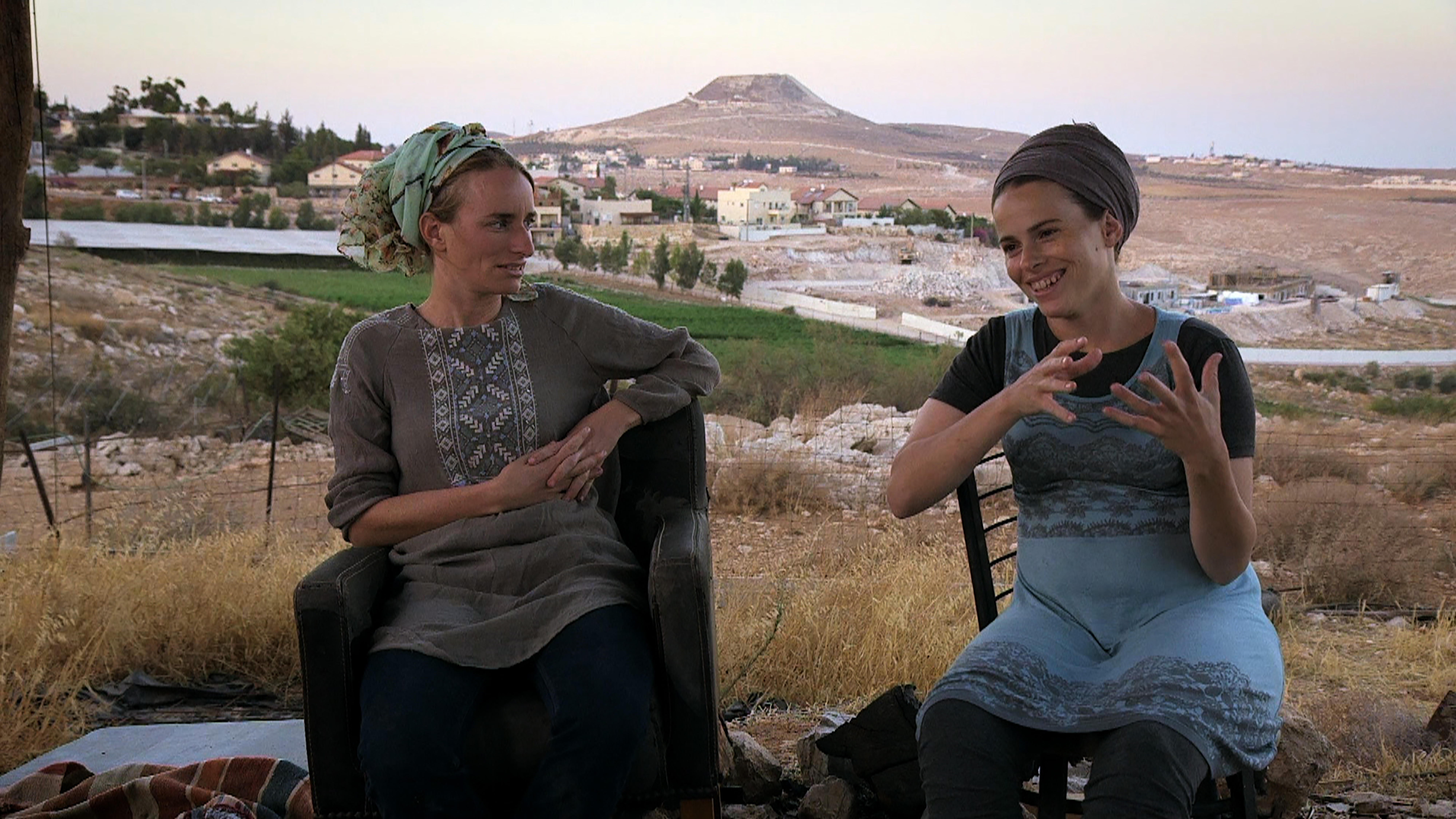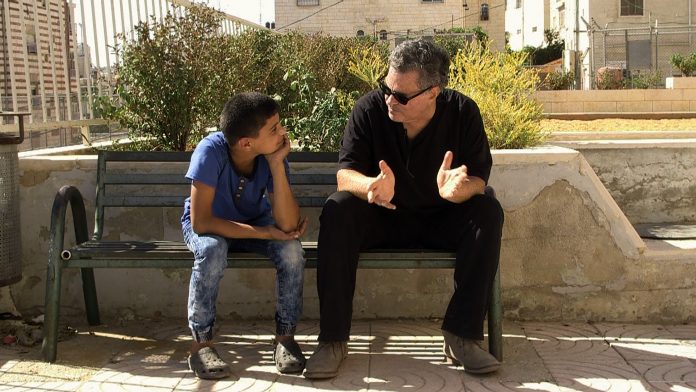(THIS ARTICLE IS MACHINE TRANSLATED by Google from Norwegian)
Amos Gitai is an Israeli filmmaker who has dedicated his life and the art of promoting peace. IN West of the Jordan River (2017) Gitai quickly establishes the intention behind the film, through a series of unused scenes from his previous work. Here we see him as a younger man working to tell about Arab-Israeli relations and the thorny road to peace.
West of the Jordan River is Gitai's first return to the occupied Palestinian territories since his documentary from 1982, Field Diary. In his latest film, he picks up the pieces from where he left off, arguing that humans are the change needed to create peace in the Middle East.
As his synopsis states: “Faced with the failing ability of politics to do something about the occupation, these men and women rise and act out of their conscience as citizens. This human energy is a proposal for change in overtime. "
Gitai offers a glimmer of hope that simple humanity may one day be a way to peace.
In the film, he compares himself to an archaeologist when he embarks on a visual diary that digs out the fresh story of a path to peace that has not yet been achieved.
The film was released last year when it was shown in the Director's Fortnight section in Cannes. The film – described by The Hollywood Reporter as a "painful letter to his home country" – has only become more urgent as time goes by, given the recent tragic clashes in the West Bank.
Now making its round trip to international film festivals (most recently in the Masters section of the Vilnius International Film Festival Kino Pavasaris in March), West of the Jordan River at a critical juncture in the history of the Middle East.
Looking back on the past
"I want to scrape layer by layer to get to the substance of the case, to understand how we can somehow reach some reconciliation in the region," he says in a clip from Field Diary. Gitai uses the clip as a reference to make a movie that stylistically takes up the thread from where he last left off, and that explores in "capsules" how the people can be the change needed in the Middle East peace process.
When he peels off the teams with references to the past, Gitai adds scenes from his previous film. An Israeli checkpoint here, and interviews with people living in the occupied territories there. One wonders the fate of those portrayed: What happened, for example, to the 10-11-year-old boy who offered a basket of strawberries to drivers at the checkpoint? What future did he have in a relentless conflict that has killed so many young Palestinians (and that has also seen a lot of bloodshed on the Israeli side)?
The film is described by The Hollywood Reporter as a "painful letter to his homeland".
"If we had our own country, we could have had work," says a man who is part of a group that is denied entry to Israel at a checkpoint in the West Bank. "But closed checkpoints are crap."
A woman talks about the daily killings; a man breaks in to say that just that day a pregnant Palestinian woman was killed in Jerusalem.
Occupied areas such as "fiction"
Several excerpts from the 1994 interview with Yitzhak Rabin – the former Israeli prime minister and Nobel laureate who was assassinated in 1995 – are also in the film. They are included to provide context to the consequences of the failed attempt to secure a credible peace plan at that time. Rabin talks about the polarization of the peace process, and about how Islamic groups such as Hamas and others opposed the process with support from Syria.
All are elements of the irreconcilability that continues to weaken the Middle East. After the mass migration to Europe of those who fled war, the irreconcilability has weakened European politics as well (something re-elected in April by Hungary's far-right prime minister, Viktor Orbán, testifies).
 But Rabin insists that despite resentment and doubt, "peace can be created […] and it can sometimes be created between the worst enemies."
But Rabin insists that despite resentment and doubt, "peace can be created […] and it can sometimes be created between the worst enemies."
Fast forward 22 years, and Gitai highlights the painful story of peace in 2016 through an interview with the uncompromising Israeli Deputy Foreign Minister Tzipi Hotovely, who describes himself as "religiously far to the right".
Today it is no longer a world with checkpoints and political will for a peace process, but a world with a border wall and ingrained irreconcilability.
Hotovely insists that Israeli settlers have the right to live as Israeli citizens in the disputed settlements in the West Bank, and that the term "occupied territories" is a fiction.
Israel writes its own "suicide note"
Not all Israelis think so: Gitai's next visit is to Breaking the Silence, an organization of Israeli soldiers documenting Israeli military activity in the West Bank, which "questions the moral price" Israelis pay for the occupation of the West Bank.
“Our government is insane; crazy young settlers rule the country, "says the leader of Breaking the Silence when Gitai asks about the current situation.
“Our government is insane; crazy young settlers rule the country. "
Breaking the Silence.
Ari Shavit, a journalist for the liberal Israeli newspaper Haaretz, states outright that unless Israel changes course in the next decade – and changes its history with repeated mistakes – time will run out of the country, and will consequently write its own suicide note.
"It's a dramatic perception," Gitai remarks dryly, as the film continues to systematize a situation in which the many years of mistakes and lost opportunities for peace have come to light long ago.
A glimmer of hope
Gitai digs mercilessly deeper into the case that affects ordinary people, and visits a group of parents who bring together Israelis and Palestinians who share the terrible experience of losing children in the conflict.
In what is one of the most emotionally challenging sequences in the film, women talk about losing sons and girlfriends in the conflict and about the long road to reconciliation. A Jewish woman who emigrated to Israel from Iraq in 1942 at the age of nine, talks about how she and her husband maintain an "Arab home," and discusses the difference in mentality and approach to life that is one of the challenges to peace.
Through reflections from the people who have been drawn into the conflict – both those who have liberal views and those who have conservatives – Gitai offers a glimmer of hope that simple humanity can one day be a path to peace, even if today's circumstances are quite bleak. prospects.


